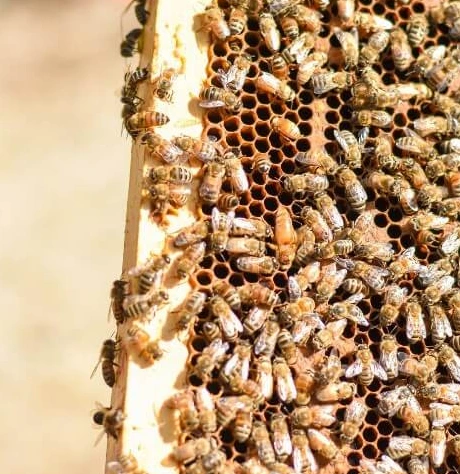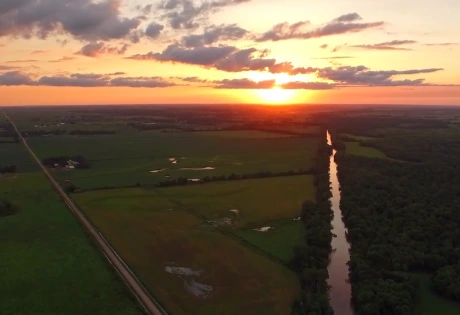Core Beliefs
Think Longterm
At Ashfount Investments, we believe that cultivating the ability to think long term is essential for success. We don’t just believe that it’s important to plan for unforeseen circumstances or growth into the next five years. To truly create businesses that make a difference to our health and wealth on a personal, community and global scale – we need to think about where our businesses will take us in our lifetime – and beyond.
At present we live in a quick-fix society, where convenience and short-term solutions have encouraged a “live for the moment” mindset. But how is this affecting the state of our societal and business worlds? How can we encourage a different way of approaching our farm spaces – while still building healthy businesses that add positively to our future?
Short-Term Thinking : Long-Term Problems
The pace of life has accelerated in the last few decades – and we’re working harder than ever. The average American spends 34.4 hours a week at work, with 4 in 10 workers logging a massive 50+ hours each week. U.S. workers also have on average 15 day’s holiday per year – compared to 28 in Europe.
This backdrop of hard work with little downtime is reflected in an ever-increasingly “quick-fix” society. Patience is at an all-time low and we expect goods and services to be easy, cheap, and convenient. We all want fast fixes for every problem and expect that technology and industry can give us those solutions. The explosion of the digital world and the arrival on the scene of enormous companies like Amazon who deliver the day after we order – or even the same day in some cases – has meant that our expectations of immediacy have never been higher.
Some of the developments in trade and industry have been incredible – especially for the growth of American GDP – which now stands at $24.0 trillion. But has the ethos of economic expansion and the evolution of our industries led to increased wellbeing?


The U.S. suffers from one of the highest rates of depression in the world (third, after China and India), and worrying reports show that of developed nations, the U.S. ranks after 16 others for health – with a consistent “pattern of poorer health at all stages of life, from infancy to childhood to adolescence to young adulthood to middle and old age.”
These trends are even more worrying in the context of global issues such as climate change and the destruction and degradation of our land and ecological wellbeing. A quick snapshot from the Savory Institute illustrates the scale of the problem – 74% of North American dryland has been affected by desertification, and at current rates of soil loss, only 60 years of harvest remain before global topsoil is depleted.
Many of the current problems we face both as individuals and collectively stem from our instant gratification society and prioritizing short-term benefits in our personal and business lives. Never has this issue been more prominent than in the arena of agriculture.
Consistent, slow, healthy growth is our framework at Ashfount Investments. We are not looking for high-risk investments with large returns. Ashfount Investments are in it for the long haul – building businesses in a manner that ensures longevity, sustainability, while caring for the health and wellbeing of all, without taking shortcuts or gambling away hard work.
Agriculture & Short-Term Thinking
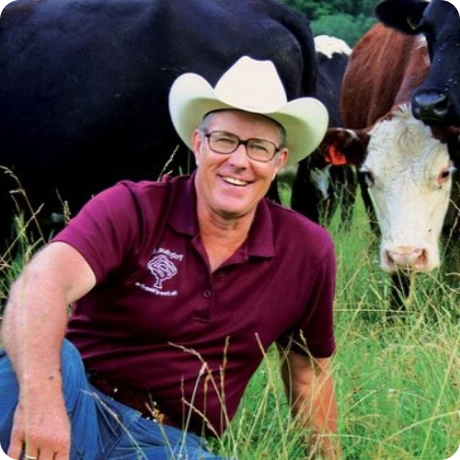
“Everything and I mean everything, about industrial mechanical agriculture, is predicated on fast shortcuts and today’s expedience. The only thing that matters is to grow it faster, fatter, bigger, and cheaper.”(Joel Salatin)
The modern industrial farming machine was developed to make food production as cheap and efficient as possible. On the surface, this is a positive way to do business – profits are maximized and the system produces more than enough food to cater for every person.
But, it’s clear this system – for all its short-term efficiency – is having serious impacts on our long-term health. Industrial-scale production of crops such as corn and soybeans has led to an overwhelming amount of food products high in damaging ingredients such as high fructose corn syrup, and monoculture is depleting our topsoil.
When it comes to livestock, the intensification of animal farming has led to issues with overuse of antibiotics, serious welfare concerns for the animals, and meat which is cheap to produce but has lower levels of beneficial nutrients such as Omega-3. The availability of cheap, nutritionally poorer food has also led to overconsumption which is in turn linked to several health-related conditions such as type 2 diabetes, cancer, and obesity.
The profit-first mindset has also led to many chemical inputs in agriculture. These have had the effect of increasing yields and profits – but we are becoming increasingly aware of serious health implications of many products, for humans, and wildlife.
One of the biggest stories relating to agrichemical use in recent years has been the findings by U.S. juries that “Roundup” herbicides, manufactured by Monsanto (now Bayer) show a clear connection to cancer. There are currently over 11,000 plaintiffs who are suing Bayer and shareholders have been warned that damages could run anywhere between $2.5 and $4.5 billion. One of the key worries in the case of Roundup, according to Carey Gillan, is that many farmers now believe they cannot farm without using these types of products.
The case of agrichemicals that damage our environment and in some cases human health is an indication of how our shared beliefs in short-term profits over long-term benefits has taken root. How can we start to challenge these ideas, and create solid businesses that think differently?
Journeys vs. “Life-Hacking”
Market forces only change when the demand for products and services change. And, to create change, we need to examine our beliefs and the way we view achievements and progress – individually and collectively.
In 2014, Rich Roll, an ultra-endurance athlete, wrote about why “life hacking” has become a damaging concept in our society. He argues that,

“Consistent with our shrinking attention span, demand for immediate gratification, intolerance for hard work, rebuttal of experiential value, and general (illusory) sense of entitlement to the good life, this hack ethos is emblematic of our obsessive modern imperative for immediacy — the drive to turbocharge, accelerate, optimize, scramble, quicken and hasten our way to maximum health, fitness, professional success and ultimately happiness.”
While he agrees that investing in ourselves and putting in the effort to find efficient ways to achieve our goals is positive – we’ve lost something along the way. He argues that the “hack” has now become the destination in of itself, rather than a tool to use along the journey towards the things we want in life.
This is a great point and underscores the mentality many of us suffer from – that all that matters are our short-term achievements and destinations, rather than the process and journey itself. The American Dream has become about getting what we want – and more of it – as fast as possible, and “to contravene and devalue the meme of the moment by suggesting the admittedly unsexy notion that hard work, patience & the paramount value of experience over short cuts and quick fixes…[is] anathema.”
This mindset means that in business, as well as in our personal lives, we are often sacrificing our long-term future on the altar of short-term profitability. The decisions we make when we only think short-term are far different from the ones we make when we take a longer view. And, these decisions will also be different if we allow ourselves to prioritize the journey and our experiences over short-term “wins”.
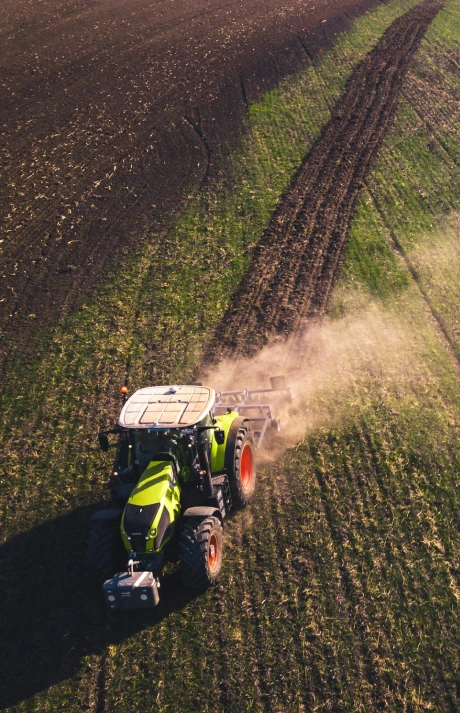
Changing Our Minds –Switching to Long Term Thinking
Switching to long term thinking means examining ourselves and our businesses through a lens that is more patient and takes a wider view than we often have when we only live for a quick-fix.
Zig Ziglar tells the story of the bamboo tree to illustrate the benefits of patience and forward-planning.
“When this particular seed of the Chinese Bamboo tree is planted, watered and nurtured, for years it doesn’t outwardly grow as much as an inch. Nothing happens for the first year. There’s no sign of growth. Not even a hint.
The same thing happens – or doesn’t happen – the second year. And then the third year. The tree is carefully watered and fertilized each year, but nothing shows. No growth. No anything. So it goes as the sun rises and sets for four solid years. The farmer and his wife have nothing tangible to show for this labor or effort.
Then, along comes year five. After five years of fertilizing and watering have passed, with nothing to show for it – the bamboo tree suddenly sprouts and grows eighty feet in just SIX WEEKS!
Did the little tree lie dormant for four years only to grow exponentially in the fifth? Or, was the little tree growing underground, developing a root system strong enough to support its potential for outward growth in the fifth year and beyond?
The answer is, of course, obvious.
Had the tree not developed a strong unseen foundation it could not have sustained its life as it grew.”

This is a great story for reminding us to think about the kinds of roots we are putting down when we make our choices in business and our personal lives. For example, now we are aware that many of our modern industrial farming practices are seriously damaging our health and soil, are we prepared to build businesses that look to regenerate the land and promote better health – even if this impacts our short-term gains?
When we make our choices about the types of food we eat, are we also prepared to spend time sourcing better quality produce that has a healthier impact on the environment and our bodies? And, as businesses in the regenerative space, will we take the time to educate our customers about the benefits of choosing meat or other produce that may cost more at the point of purchase, but provide a range of longer-term benefits?
Our Legacy. What Kind of Future do we Want to Build?
In recent years, the new field of epigenetics has begun to understand that we are even more sensitive to our environments than previously thought. Our genes can switch on and off due to triggers in our environments and within our bodies. One of these triggers is the food we eat – and this can impact our children and even our children’s children.
And, just like we pass on our genes to future generations, we also pass on our soil, health systems, and agricultural practices. In the farming space, businesses should ask themselves how they want their land to look for their children, their grandchildren, and beyond.
Taking this kind of long-lens view means that necessarily the choices we make each day are made within the context of long-term planning. And, as we switch our thinking and encourage others to do the same, we can begin to impact our shared values at a local and global level.
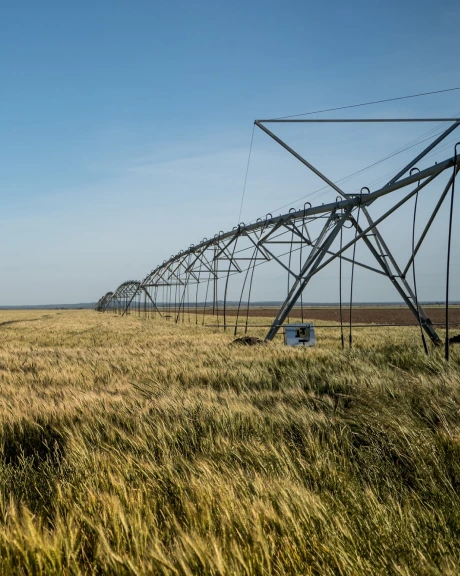
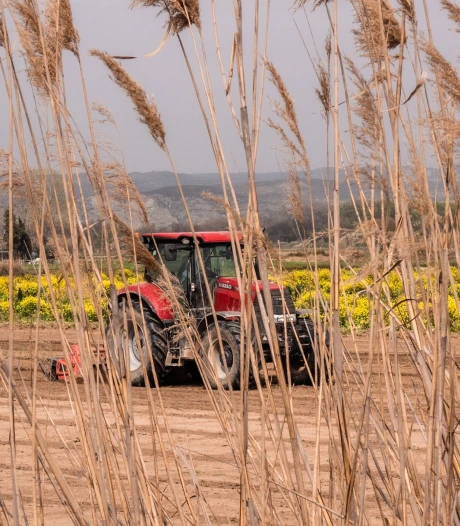
One recent development in this different way of thinking has come from New Zealand. The Prime Minister, Jacinda Arden released a national budget that, for the first time, placed citizen wellbeing as a priority above that of improving the bottom line for businesses.
Economists described her new guidance on policy which states that spending must advance priorities such as reducing child poverty and developing a sustainable economy as a “game-changing event.”
The changes in policy in the government of New Zealand are an example of how we can collectively start to change our value system so we can improve our ecological and societal issues. The more people get used to thinking long-term and reflecting on the future – in a positive way – the more we can start to expect and demand change from our leaders in business and politics.
Farming and Long-Term Thinking
Regenerative agriculture takes a long-term view out of necessity. It takes time to heal the damage done by industrial farming and to learn how to “read” the landscape. Many farmers who make the switch from industrial farming to a more ecologically sound model realize quickly that they need to learn a whole new set of skills and face brand new sets of challenges.
These challenges can include coming to terms with the harm that has been caused by a short-term agricultural point of view.
For example, Charles Massy, a regenerative farmer in Australia, realized that the methods he first used when he began farming had caused significant damage to the paddocks and soil on his land. Allan Savory also came to understand that one of the initiatives that he was involved with in Zimbabwe – shooting over 40,000 elephants in an attempt to prevent desertification, actually led to a worsening of the situation. In both cases, these regenerative farmers learned from their failures and found new ways to farm in ecologically positive ways.

In the U.S., where market conditions do not favor smaller farmers, choices have to be made about long-term goals and how to navigate market pressures. For example, will farmers be tempted to sacrifice their regenerative values and make choices which are unhealthy for them and their business long-term? Are they prepared to take the time to learn how to heal their soil and build a holistic system that works for their unique situation?
Coming to these decisions means being aware of a longer-term plan – how farmers want their business to look in 5, 10, 20 years – and into the next generation.
Long-Term Thinking with Ashfount Investments
At Ashfount Investments, we believe that long-term thinking is the key to business investments that will offer true value for our ventures.
We can improve our mental and physical health when we realign our values, and adjust our thinking away from the quick-fix, instant gratification model. When we can build farming businesses that strive to produce healthy, nutritious food, we can collectively begin to heal our bodies, soil, and ecology.
We believe that sustainable, regenerative practices are the key to securing the future of our farming industry and ensuring long-term food security for our generation and the generations to come. And, these practices can only be achieved by shifting our mindset to one of a long-term view.
